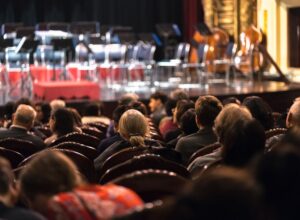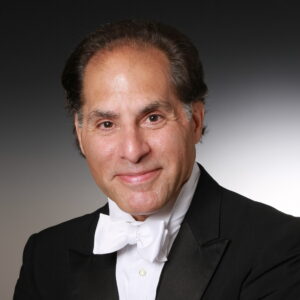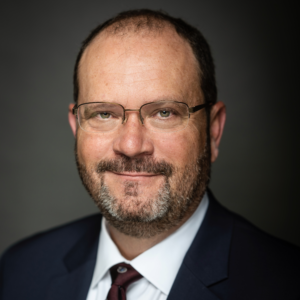Writer: Eleana Teran
 2 min read April 2023 — To improve the local arts and cultural scene, the City of Charlotte launched the Charlotte Arts and Culture Plan project. According to the State of Culture Report, the Charlotte-Mecklenburg creative ecosystem is in danger of going bankrupt or collapsing since so many organizations are having trouble securing stable funding. Without a steady source of income, the arts and culture industry could experience significant losses and lose out on chances to grow the workforce, attract and retain talent, improve health and wellness, and more.
2 min read April 2023 — To improve the local arts and cultural scene, the City of Charlotte launched the Charlotte Arts and Culture Plan project. According to the State of Culture Report, the Charlotte-Mecklenburg creative ecosystem is in danger of going bankrupt or collapsing since so many organizations are having trouble securing stable funding. Without a steady source of income, the arts and culture industry could experience significant losses and lose out on chances to grow the workforce, attract and retain talent, improve health and wellness, and more.
Despite the challenges, local arts organizations continue to thrive and invest in the region. James Meena, artistic director for Opera Carolina, and Douglas Singleton, executive director of Charlotte Ballet, shared their accomplishments and objectives with Invest:. Opera Carolina is now looking ahead to its 75th season, while Charlotte Ballet has brought in a new Artistic Director and is concentrating on elevating its brand. Both organizations are prioritizing education initiatives to make art education more accessible to students, and continuing their work in diversity, equity and inclusion.
What have been some key highlights for the organization from the past year?
James Meena: “Opera Carolina is best known for the grand opera productions that we perform, but in between that we fill out our schedule with performances, recitals and events that serve many segments of the community. The Opera maintains a resident company of 30 performers who live in greater Charlotte and do a majority of these performances. We focus a great deal on artists from the area so that we can build the creative class here in Charlotte, encouraging them to remain within the local economy and continue to make Greater Charlotte an engaging, arts-friendly region. We are honestly thriving at this point, which is amazing considering the chaos the pandemic caused. The company is now planning for our 75th season in 2024-25, so we are looking forward to celebrating that.”
 Douglas Singleton: “The highlight for Charlotte Ballet is that we hired a new Artistic Director, Alejandro Cerrudo. He was appointed in May 2022. He came in toward the end of our 2022 season and was able to quickly understand the organization.
Douglas Singleton: “The highlight for Charlotte Ballet is that we hired a new Artistic Director, Alejandro Cerrudo. He was appointed in May 2022. He came in toward the end of our 2022 season and was able to quickly understand the organization.
I’m super excited for Cerrudo to support his vision for the company. Alejandro was trained in Spain, then worked at the Stuttgart Ballet, then the Nederlands Dans Theatre and then Hubbard Street Dance Chicago, where he spent the majority of his dancing career and transitioned into what I think is one of the best choreographers in the United States. What is interesting about Alejandro’s selection as an artistic director is that he is more of a creative, and I think that’s what caught the eye of the search committee. He is internationally known, and has several of his works in current repertoires in other dance companies throughout the world. It is an opportunity for us to elevate the brand of Charlotte Ballet.”
How are the arts an economic engine for the city?
Meena: “The most obvious is when we do a performance, and people who are buying a ticket also go out to restaurants and pay for parking. However, that is only the beginning as our 30-member resident company is made up of people who live in Greater Charlotte, and are part of the regional economy. It is an interesting fact that as people and companies are looking at Charlotte as a place to relocate or expand their business, they consider the arts scene because they know their employees are interested in not just attending performances, but being part of an exciting artistic city.”
Singleton: “We want to elevate the brand so Charlotte Ballet can easily employ the dancers for our season in Charlotte for 36, sometimes 38 weeks. The goal of enhancing the brand and bringing someone like Alejandro is to make Charlotte Ballet more valuable in an international dance festival setting.
Those festivals typically happen outside the season. That allows us to create additional weeks of work, which in turn allows us to extend the employment contract period, the terms of the contract for the dancers, therefore making us more competitive in the marketplace.”
What kind of education initiatives are ongoing to make art education more accessible?
Meena: “Access has been a problem for the last 30 years as art programs continue to be minimized throughout our schools. Over this period, Opera Carolina’s investment in education programs has increased fourfold. One of our most successful programs is called Opera Xpress. This is our in-school touring company that goes into elementary schools and performs for young people. There is also a digital platform for the program where schools can access performances online if for some reason the program cannot come in person. It is not going to take the place of arts education in schools, but it does provide an opportunity for exposure, especially to those that would otherwise never get the opportunity.”
Singleton: “We have a huge educational impact through our Charlotte Ballet Academy. The Academy is our training program for dancers, and we’re super proud of all of the dancers that are now working. Our graduates are Charlotteans that grew up in the system and are now dancing across the world. They came to train with us when they were 16 to 17 years old and are now out there working in the industry.
The Academy is our artistic workforce development pipeline. We’re trying to build the next generation of dancers who were born and raised in Charlotte. This is a career opportunity, and we want to make sure that every student who has an interest in dance has an opportunity to train with us.”
What is a key area of focus for your organization moving forward?
Meena: “We have been working in the DEI area for more than 20 years. One of our core beliefs is that opera and music are universal, and so that tasks us to connect with people regardless of their background. There is a stereotype that opera is for the rich, and we fight this stereotype tooth and nail. Buying an ad in a LatinX publication or doing an interview on an African American radio station is not enough. It takes effort to connect with populations and personally invite and welcome people from across the community to the opera. We hope that the investments we have made thus far demonstrate that we are open and welcoming to diverse audiences.”
Singleton: “The number one issue facing the arts and culture sector is the disruption of funding that took place during the pandemic. The Charlotte community had always relied on workplace giving as a funding source. During the pandemic that went away. There were not a lot of opportunities to do any kind of in-person workplace fundraising.
The real challenge is revenue, how much revenue we need to sustain the ecosystem, and then how the investment into the cultural sector aligns with the values of corporate America, as well as the public dollars and our elected officials and the folks that elect them. That’s the biggest unknown that we’ll see in 2023 and 2024. I’m not ringing any alarm bells right now, but I know where the bell is.”
For more information, visit:

